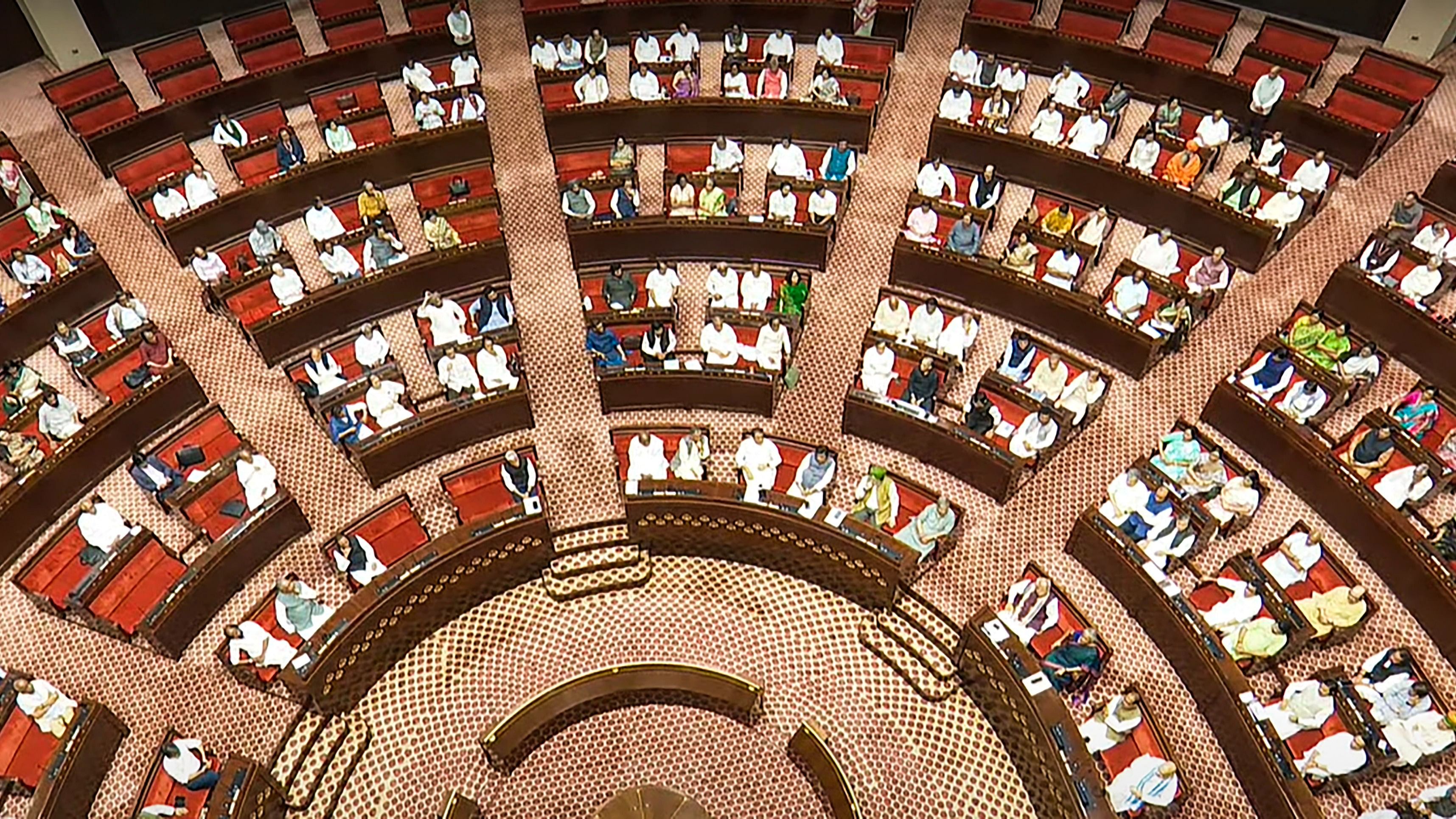
Members in the Rajya Sabha.
Credit: PTI File Photo
The BJP’s tally in Rajya Sabha went down further on Saturday after 4 members completed their term, making its task of pushing legislation tough.
Those retiring include Rakesh Sinha, Ram Shakal, Sonal Mansingh, and Mahesh Jethmalani. They were chosen as non-aligned members by President Droupadi Murmu on the advice of the ruling party. However, all four formally allied with Prime Minister Narendra Modi's government afterwards.
Following their retirement, BJP’s strength in the Rajya Sabha has come down to 86 while National Democratic Alliance’s (NDA) tally stands at 101 which is below the current majority mark of 113 in the 245-member House.
Meanwhile, the Congress-led I.N.D.I.A. alliance has 87 seats. Of these, Congress has 26, TMC has 13, and AAP and the DMK have 10 each.
Parties that do not support either NDA or I.N.D.I.A. bloc such as K Chandrashekar-led BRS, AIADMK, BJD and YSRCP hold the rest of the seats.
Passing Bills in Rajya Sabha likely to become tough for BJP
In order to pass the bills in the Upper House, BJP can count on the 15 votes from NDA parties MPs while It will also require 13 additional votes in its favour.
In such a scenario, BJP dependence will increase on support from AIADMK of Tamil Nadu and former Andhra Pradesh Chief Minister Jagan Mohan Reddy's YSR Congress Party to push bills in the Upper House.
Both YSRCP and AIADMK have 11 and 4 seats respectively in the Upper House. The Jagan Mohan Reddy-led party has offered issue-based support to the saffron party in the past while AIADMK is an ex-ally of BJP.
BJP is mostly likely to reach out to ex-Odisha Chief Minister Naveen Patnaik's BJD, who has nine MPs, to seek support to pass bills. However, this is highly unlikely since BJP defeated BJD in the May-June state elections and the latter will not lend its support now.
How many vacant seats are there in Rajya Sabha currently?
In all, there are 20 vacancies at this time, including 11 held by elected members for which polls are expected this year.
Of these, there are two seats each in Maharashtra, Assam, and Bihar, and one each in Haryana, Rajasthan, Madhya Pradesh, Telangana, and Tripura.